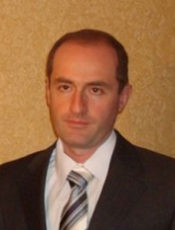As Washington schemes are implemented, Ukraine becomes a testing ground for nationalist plots in Eastern Europe. The change of regime by making nationalists and radicals get to the front line of political struggle is a risky example for Europeans. On average 10-15% of Europeans support nationalists. The division line between the West and the East is where the European Union is most vulnerable. The feeling of discontent with social and economic aspects of Eurointegration, as well as the rejection by European majority of such imposed values as the propaganda of homosexualism and single marriages give an impetus to spreading the ideas of Eurosceptics…
Washington steadily turns a blind eye on nationalist and pro-fascist nature of the Kiev regime. The recent trips of US Vice-President Joe Biden and CIA director John Brennan to Ukraine have demonstrated the US support of the Ukraine’s rulers. On May 28-29, Ukraine’s acting Prime Minister of Ukraine Arseniy Yatsenyuk paid a working visit to Germany to meet German Chancellor Angela Merkel. He took part in the summit on Energy Security in Berlin and participated in the ceremony of the Aachen International Charlemagne Prize won this year by President of European Council Herman Van Rompuy. German antifascists met him with protests. They called him a terrorist and demanded to stop a new war in Europe and put an end to US-sponsored terrorism in Ukraine. Back In the days of Cold War when the Soviet Union confronted the United States, Washington used intelligence agencies to maintain contacts with Ukrainian nationalists. Now the situation is different and they openly coordinate their foreign policy efforts. I believe the recently surfaced information about the visit of Pravy Sector coordinator Andrei Artemenko to the United States is an event to be followed by a series of scandalous revelations. The influence exerted by the Ukrainian crisis on Europe is still hard to gauge in full measure but there is ground to believe it will grow as the events unfold. Brussels hopes that after the inauguration of Petro Poroshenko on June 7 the new Ukrainian leadership will manage to put the law enforcement agencies under the control of executive power instead of ultra right nationalists command. Do the overseas partners share the same hope? Does the alienation of nationalists meet the plans of Washington?
All told, there is a feeling that the presence of anti-Russian, nationalist, pro-fascist elements in the ranks of Kiev-based leadership meets the goals of the United States administration that tries to make Europe see the things in the same light. The US wants Europeans to increase military spending within the framework of NATO and drive a wedge deeper into the relationship between the European Union and Russia. The average defense spending in Europe is 1, 6% (as of 2013), far less than the 2% minimum wanted by NATO. This September, Wales hosts the NATO summit. Washington will call on allies to make a larger contribution. It will cite the Ukraine’s nationalism, the war in the south-east of the country and the exacerbation of tensions between Kiev and Moscow as the reasons for boosting military potential. Otto Eduard Leopold von Bismarck once said, “with Russia it’s either fair play or no play at all." It’s still acute. The US pushes Europe to the forward edge of the grand chessboard making it involved in Eurasian battle. Brussels has many reasons to be cautious, especially in view of the right turn as a result of the European election. There is a growing support for Moscow’s Ukraine policy in France and Great Britain.
For the US Ukraine has become another phase of geopolitical mission which envisions NATO expansion to the East and deeper into Eurasia. But the game will have different implications for the US and Europe. Germany should not forget the words of such a wise person as von Bismarck was, they have never been so relevant.









